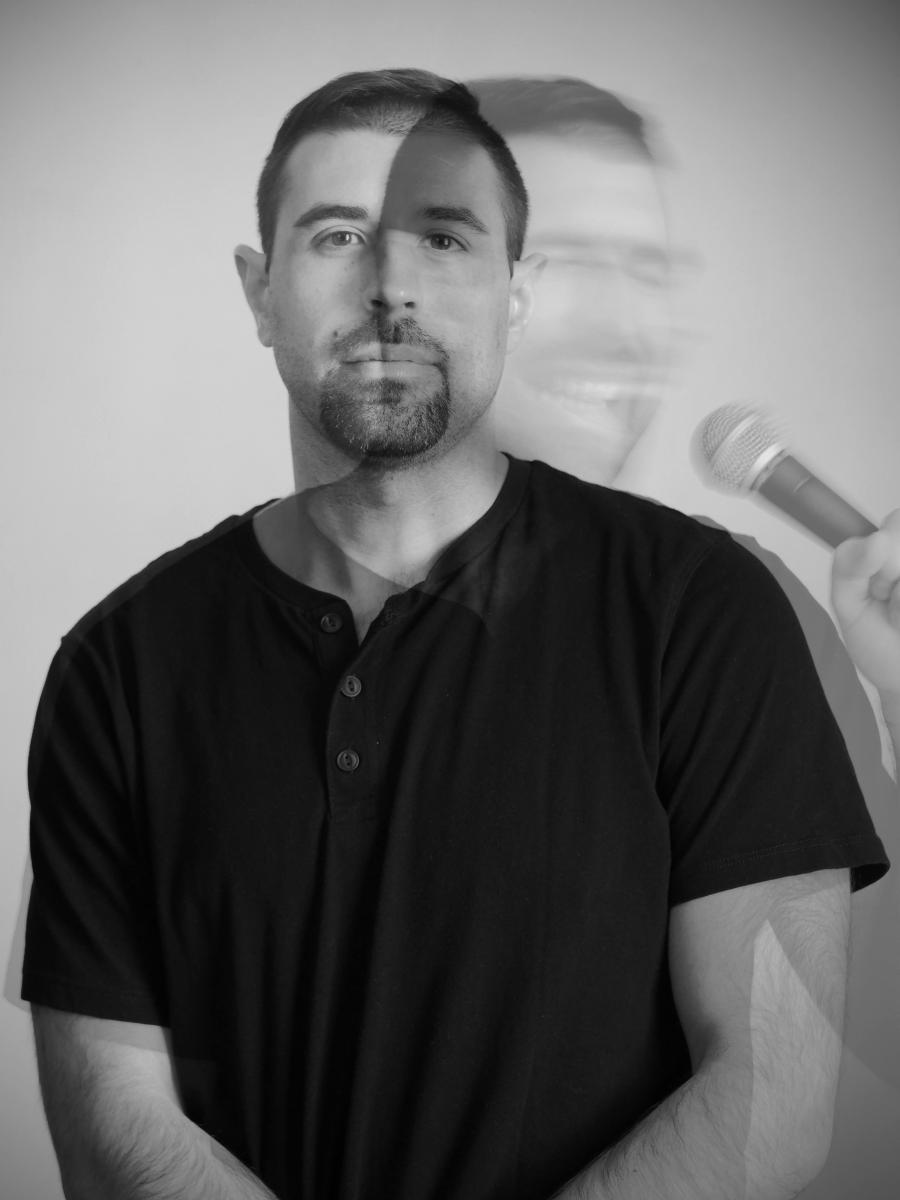An Essay By Tyler Eschendal
 For many years, I chose not to make music around my stutter because I didn’t understand it. I was concerned to share it with others because for over twenty years, I primarily identified as a covert stutterer: someone who purposely omits or substitutes words to avoid stuttering. I felt disconnected from the biggest constant in my world.
For many years, I chose not to make music around my stutter because I didn’t understand it. I was concerned to share it with others because for over twenty years, I primarily identified as a covert stutterer: someone who purposely omits or substitutes words to avoid stuttering. I felt disconnected from the biggest constant in my world.
My stutter came early around the age of 5 years old, with no immediate family history of stuttering. I began speech therapy with Dr. David Daly from age nine to thirteen, helping to develop many of the tools and tricks that I continue to carry with me today.
With strong influence from my grandparents, music quickly became important to me at an early age with the introduction of a drum set and the promise that I had to take lessons. Percussion and composition became a place of fluency, a place of control, a place for my intentions, and often a beautiful distraction from my stutter. I was never shy, but I certainly used music and humor as misdirection for my stutter and as a point of connection to make friends in school, sports, and music camps.
I knew early on that I was going to pursue a career in the arts. Two decades and two degrees in music composition later, I’ve found myself living in Los Angeles as a professional composer, videographer, and lecturer at a University, all of which have their hurdles and triumphs as a person who stutters. These titles often push my comfort zone, but as I’ve come to find in my speech journey, expanding that comfort always strengthens my ability as a communicator, as a mentor, and heavily influences my art.
In the spring of 2023, I released ACTIONS, a series of interconnected music videos that confront and explore the musicality of speech, communication, fluency, and stuttering.
Each movement of the series presents a different verbal or physical action (Arguing, Acting, Singing, Ordering, and Explaining) that uses percussion performances, theatrical monologues, and singing as a frame to draw attention to the experience of stuttering. ‘Arguing’ and ‘Ordering’ reference the fear and absurdity of confrontation, ‘Acting’ and ‘Explaining’ examine the often performative aspects of stuttering, while ‘Singing’ employs childhood speech therapy exercises as lyrics.
The goal of the series was to help redefine fluency for myself, to better understand my stutter, and to connect to other people who stutter through music, text, and performance. The culmination of which I express in the final words of the series: “Maybe that’s what this series is all about? That performance is this heightened scenario of truth that diverts guilt. Your stutter can’t be wrong if it’s the most important part of the thing. If it’s the point of the thing. Performance is the muse of fluency, period.”
From the Fall 2023 Magazine






 Podcast
Podcast Sign Up
Sign Up Virtual Learning
Virtual Learning Online CEUs
Online CEUs Streaming Video Library
Streaming Video Library